ArticlesPaula E. Kirman
Paula E. Kirman is a writer, editor, photographer, and filmmaker. She lives in Edmonton where she edits community publications and is a singer/songwriter. She is also a community organizer and has been known to drink too much coffee. Her website is wordspicturesmusic.com.
-
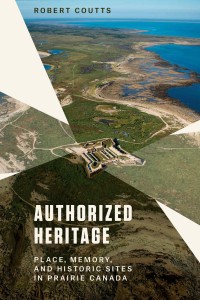 Non-Fiction
Non-FictionHistorian challenges the dominant settler-colonial narrative of heritage sites
In Authorized Heritage: Place, Memory, and Historic Sites in Prairie Canada, Winnipeg-based Robert Coutts presents a detailed examination of Prairie heritage sites and how governments are the mediators and arbitrators of what is – and isn’t – considered heritage. The book also discusses how class, gender, and sexuality are distanced from the heritage discourse. -
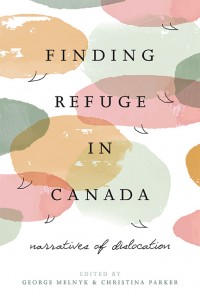 Non-Fiction
Non-FictionRefugees tell their own stories in collection edited for ‘depth, diversity, and drama’
Canada, both now and throughout history, has usually been regarded as a welcoming country to refugees fleeing war, persecution, and famine. But what kinds of reception have refugees really encountered here? -
 Fiction
FictionMystery tale created as an exercise in writing a book beginning to end, ‘with no skipping about’
When a downsized social worker helps a good friend deal with the murder of a beloved granddaughter, she and her cat are thrust into a gritty world full of sex, lies, and betrayal. She faces these challenges with intelligence and humour, only to discover that what at first appeared to be a simple street killing in a Canadian city is just the surface of a complex and dark set of criminal schemes. -
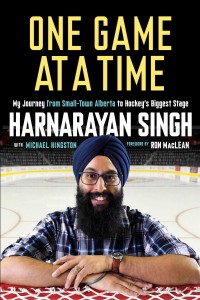 Non-Fiction
Non-FictionMemoir is both a call to follow your dreams and a call for better representation in media
Harnarayan Singh grew up in Brooks, Alberta, where he loved hockey and watched Hockey Night in Canada on Saturday nights – much like many of the other kids. However, Singh didn’t look like the other kids, or any of the broadcasters or analysts on the show either. -
 Features
FeaturesPlay showcasing Viola Desmond’s historical stand grew to span period of four decades
Viola Desmond made history in 1946 when she refused to leave a whites-only area of the Roseland Theatre, a movie house in New Glasgow, Nova Scotia. She was then convicted of a minor tax violation for the one-cent tax difference between the seat she paid for and the more expensive seat she used. -
 Non-Fiction
Non-FictionInterdisciplinary, holistic approach to Truth and Reconciliation Commission’s 6th Call to Action
Canada’s Truth and Reconciliation Commission (TRC) released 94 Calls to Action in June of 2015, urging reform of policies and programs in order to repair harms caused by residential schools. Call to Action 6 addresses repealing Section 43 of Canada’s Criminal Code, which allows the corporal punishment of children. Editors Valerie E. Michaelson and Joan E. Durrant responded to this call by bringing together diverse voices in Decolonizing Discipline: Children, Corporal Punishment, Christian Theologies, and Reconciliation. -
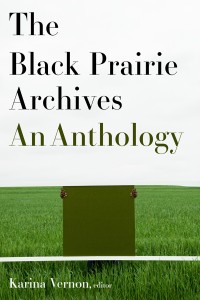 Non-Fiction
Non-FictionEstablishing a Black Prairie literature tradition, starting with a paddler from 1873
The literary tradition of the Prairies – at least, the way it has often been presented in popular culture and in classrooms – has typically not included Black writers or histories. The Black Prairie Archives: An Anthology radically transforms what Prairie literature looks and sounds like, and establishes a Black Prairie literary tradition. -
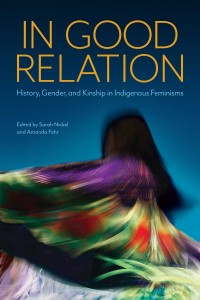 Features
FeaturesEditors build broad collection with ‘multiplicity of expression around Indigenous feminisms’
The voices of Indigenous women are often not well represented within mainstream feminism, which has historically been white and middle class. However, over the past three decades, Indigenous feminist literature has addressed how Indigenous women are affected by both colonialism and patriarchy. -
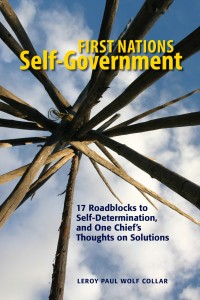 Features
FeaturesLeroy Wolf Collar wants to move government from a model of dystopia to utopia
In this era of reconciliation, the self-determination of Indigenous Peoples in Canada is more important than ever. Some Indigenous communities have signed self-government agreements of various kinds with the federal government, yet there are still many obstacles along the path to true self-determination for Indigenous nations. -
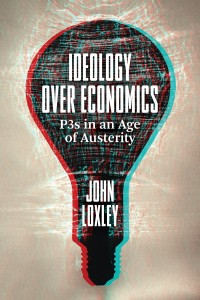 Non-Fiction
Non-FictionUntangling the promised benefits of public-private partnerships
Public-private partnerships, known as P3s, in which the private sector takes on roles previously carried out by the public sector, are becoming popular in the United Kingdom, the United States, and Canada, especially since the 2008 financial crisis.









